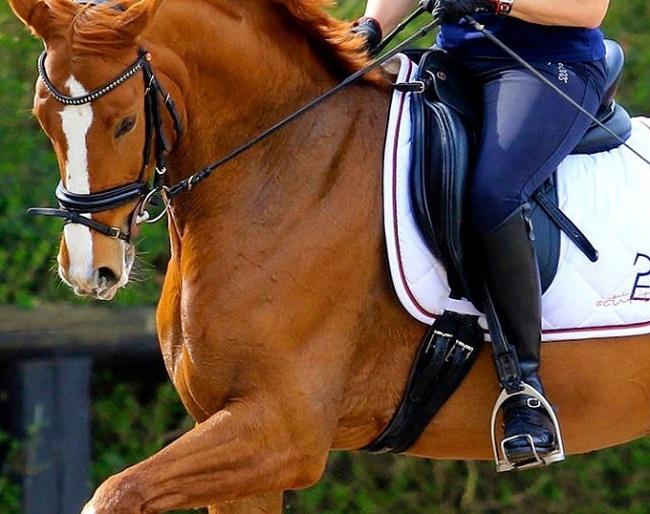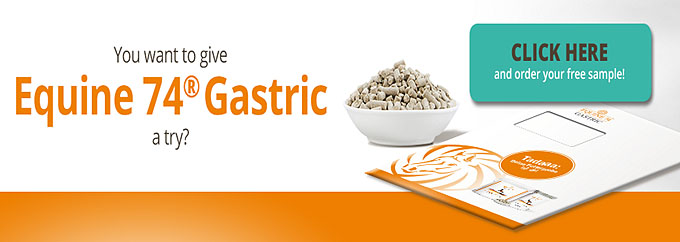
When horses show defensive behaviour when saddling and harnessing, it is usually referred to as saddle or harness pressure. There are many reasons for this: an unsuitable saddle, a badly fitting belt, general sensitivity, blockages in the back or simply a rider who rips the belt down carelessly. But many do not think of a stomach ulcer as a cause at first.
Also aware of this symptoms? "He gets angry saddling and tense in his back and is quickly stressed!" Any idea what could be the problem? Maybe it's a stomach problem.
Try Equine 74 Gastric and order your sample now!
Why do horses with stomach problems react sensitively to saddling and tightening the belt when the pain is inside?
Although the cause of the pain is in the horse's stomach, it can be so severe that it can extend into the horse's back. The sympathetic innervation of the stomach is essentially located at the vertebrae at the withers. When a horse has stomach problems, such as gastric mucosal irritation or stomach ulcers, the pain is transmitted through the nerves in the withers to the brain. This increases the activity of the autonomic nervous system, which increases the tension of the muscles and makes the horse more sensitive, especially at the withers. Because of this sensitivity, the horse reacts particularly sensitively when the saddle is placed on the withers and the girth is tightened.
How do horses enforce saddling?
As with other symptoms, it varies how pronounced the symptoms are when horses are forced to saddle. It can be a simple pushing away of the back when tightening the belt, similar to a hollow back, an energetic hitting with the tail or the threat and biting as soon as one comes with the saddle in the direction of the back. With some horses the saddle force is so strong that they throw themselves on the ground when saddling or when restrapping.
How can I tell if saddle pressure is caused by an ulcer?
In general, the horse does not directly show you why it has developed a compulsion to saddle. Therefore you should also have a check to see if the saddle fits well and if the belt fits correctly. However, if it is conspicuous that the horse suddenly develops a saddle force with suitable saddle equipment, although otherwise there were never problems with saddling and straps, the causes should be clarified. In addition to a stomach ulcer, injuries on the pasture or otherwise caused blockages can also be responsible for saddle pressure. However, if other symptoms typical of stomach ulcers also occur, the horse should be examined.
Try Equine 74 Gastric for natural, long-term ulcer management in your horses.
Related Links
Anne Troensegaard: "Equine 74 Gastric Made Kipling More Relaxed and In Front of the Aids"
Tracy Wyngard-Gill: "Equine 74 Gastric is a Long-Term Solution for Gut Health"
Helle Dueholm: "I Can see a Big Difference With all My Horses on Equine 74 Gastric"
Alessandro Alemani: "With Equine 74 Gastric I Can Prevent Stomach Issues in My Horses"
Alix Szepesi: "It's a No Brainer to Use Equine 74 Gastric As All My Horses Are Happier"
Tinne Vilhelmson-Silfven Relies on Equine 74 Gastric for Her High Performance Dressage Horses
